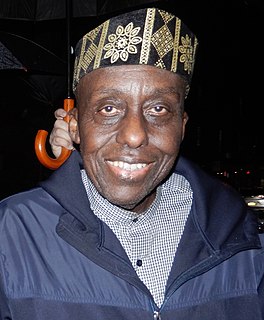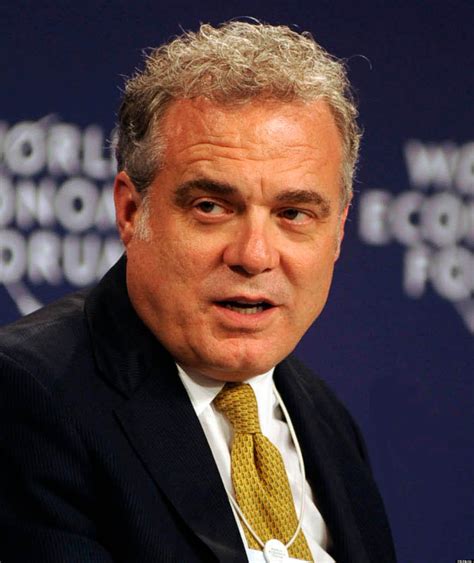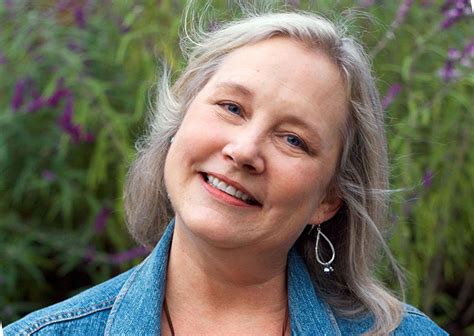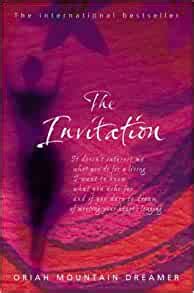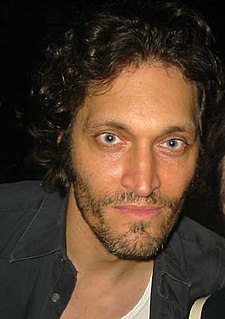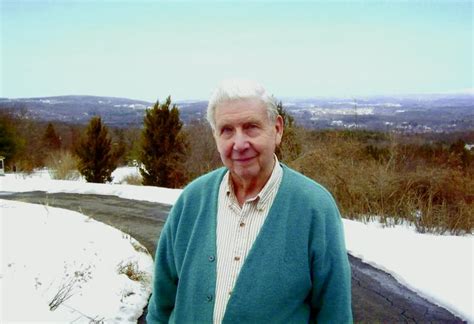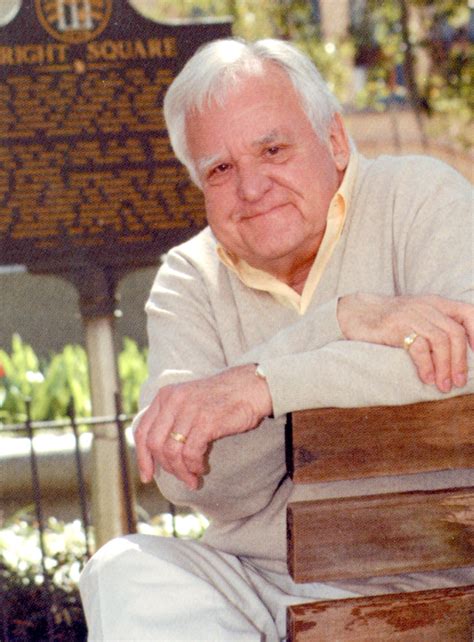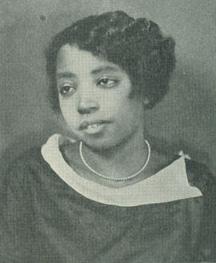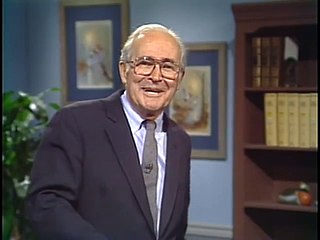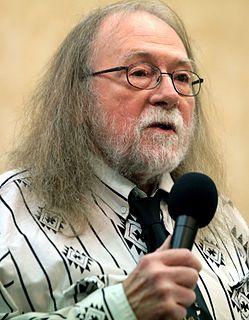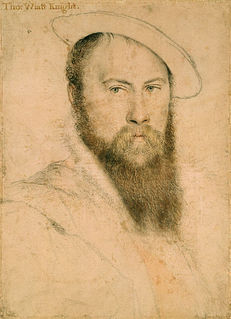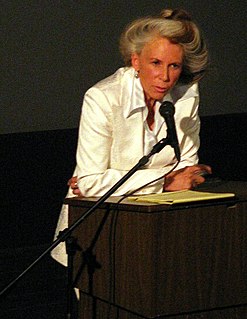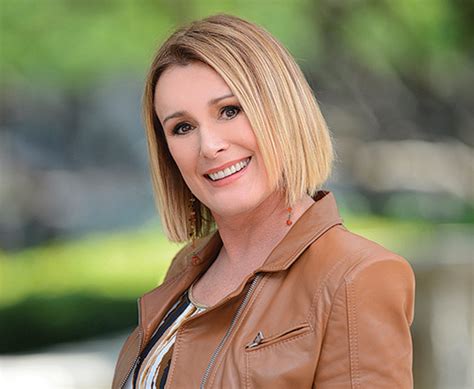Top 1200 Excruciating Pain Quotes & Sayings - Page 20
Explore popular Excruciating Pain quotes.
Last updated on October 3, 2024.
The crying sounded even louder out of doors. It was as if all the pain in the world had found a voice. Yet had I known such pain was in the next room, and had it been dumb, I believe—I have thought since—I could have stood it well enough. It is when suffering finds a voice and sets our nerves quivering that this pity comes troubling us. But in spite of the brilliant sunlight and the green fans of the trees waving in the soothing sea-breeze, the world was a confusion, blurred with drifting black and red phantasms, until I was out of earshot of the house in the stone wall.
I engaged - started engaging in yoga as a physical practice, but very quickly found out there was something broader to it, and that it was actually helpful for my pain, and started to get into meditation, started to study the Upanishads and the Bhagavad Gita and a lot of the scriptures associated with yoga, the Yoga Sutras, and very quickly came to this conclusion that this had a huge impact on my ability to lead, but, more importantly, the ability to control my sympathetic nervous system, which had a direct tie to the pain in my arm.
It is indeed better (as no one ever could deny) that men should be led to worship God by teaching, than that they should be driven to it by fear of punishment or pain; but it does not follow that because the former course produces the better men, therefore those who do not yield to it should be neglected. For many have found advantage (as we have proved, and are daily proving by actual experiment), in being first compelled by fear or pain, so that they might afterwards be influenced by teaching, or might follow out in act what they had already learned in word.
The other exception to the rule regards dealings with masochists. A masochist derives pleasure from being hurt; so denying the masochist his pleasure through-pain hurts him just as much as actual physical pain hurts the non masochist. The story of the truly cruel sadist illustrates this point: The masochist says to the sadist, "beat me." To which the merciless sadist replies, "NO!" If a person wants to be hurt and enjoys suffering, then there is no reason not to indulge him in his wont.
Resentment always hurts you more than it does the person you resent. While your offender has probably forgotten the offense and gone on with life, you continue to stew in your pain, perpetuating the past. Listen: those who hurt you in the past cannot continue to hurt you now unless you hold on to the pain through resentment. Your past is past! Nothing will change it. You are only hurting yourself with your bitterness. For your own sake, learn from it, and then let it go.
According to physiological law, all natural, normal functions of the body are achieved without peril or pain. Birth is a natural, normal physiological function for normal, healthy women and their healthy babies. It can, therefore, be inferred that healthy women, carrying healthy babies, can safely birth without peril or pain.
Inside me, I think that an animal goes through a lot of pain in the whole cycle of death in the slaughterhouse; just living to be killed. That whole situation is really messed up for animals, growing up in those little cooped-up pens. I just don't think its worth eating that animal. I think animals should be free. There's so much other food out there that doesn't have to involve you in that cycle of pain and death.
Katar," Raoden called. Yes, My Lord?" Do you know what it is? The secret, I mean?" Kahar smiled. "I havent't been hungry in days, my lord. It is the most amazing feeling in the world-I don't evern notice the pain anymore." Raoden nodded, and Kahar left. The man had come looking for a magical solution to his woes, but he had found an answer much more simple. Pain lost its power when other things became more importan. Kahar didn't need a potion or an Aon to save him-he just needed something to do.
My history of moving away from drugs is not the kind you hear from most people. Certainly not from celebrities, especially those professionally recovering people. What I've noticed in my overuse of cocaine is the period of pleasure versus the period of pain. That is to say that when you first get high on anything, the pleasure is predominant and you don't pay much price. A little hangover or whatever it might be with another drug. But after a while the ratio begins to change, and there' s far more pain in the deal than pleasure. It just completely goes in another direction.
It is hard to be with another's pain if we cannot be with our own. Since I was a child I have always felt a deep sense of responsibility to ease others' pain. But I have discovered that often, beneath this genuine and admirable desire, lies an inability to be with my own sorrow. Several years ago, watching a close friend suffer when a brain aneurysm took away her life as she knew it, I wrote in my journal, "I won't ask much. But if you would just let me save your life, perhaps it will not hurt so much to know I cannot save my own.
That's the thing I want to make clear about depression: It's got nothing at all to do with life. In the course of life, there is sadness and pain and sorrow, all of which, in their right time and season, are normal-unpleasant, but normal. Depression is an altogether different zone because it involves a complete absence: absence of affect, absence of feeling, absence of response, absence of interest. The pain you feel in the course of a major clinical depression is an attempt on nature's part (nature, after all, abhors a vacuum) to fill up the empty space.
Most people are hurt deeply by betrayals in relationships. It might be better to really get up against and sort of contact that caring, and maybe take a more loving stance even with your own pain, and keep your feet moving towards what you really want, because the cost in terms of intimacy and connection and caring that comes when you try not to be vulnerable, when you're constantly looking out for betrayals of trust, is too great. It makes it very hard to have relationships of the kind that you really want. One, look where the pain is. Flip it over; you'll find that's where the values are.
...the nervous systems of other animals were not artificially constructed - as a robot might be artificially constructed - to mimic the pain behavior of humans. A capacity to feel pain obviously enhances a species' prospects of survival...it is surely unreasonable to suppose that nervous systems that are virtually identical physiologically, have a common origin and a common evolutionary function, and result in similar forms of behavior in similar circumstances should actually operate in an entirely different manner on the level of subjective feelings.
I have felt the pain that arises from a recognition of beauty, pain we hold when we remember what we are connected to and the delicacy of our relations. It is this tenderness born out of a connection to place that fuels my writing. Writing becomes an act of compassion toward life, the life we so often refuse to see because if we look too closely or feel too deeply, there may be no end to our suffering. But words empower us, move us beyond our suffering, and set us free. This is the sorcery of literature. We are healed by our stories.
This was why I was here. This was why I would take whatever reception waited for me when I got back. Because, underneath all the anger and the sarcasm, Jacob was in pain. Right now, it was very clear in his eyes. I didn't know how to help him, but I knew I had to try. It was more than that I owed him. It was because his pain hurt me, too. Jacob had become a part of me, and there was no changing that now.
We often move away from pain, which is helpful only before being hurt. Once in pain, it seems the only way out is through. Like someone falling off a boat, struggling to stay above the water only makes things worse. We must accept we are there and settle enough so we can be carried by the deep. The willingness to do this is the genesis of faith, the giving over to currents larger than us. Even fallen leaves float in lakes, demonstrating how surrender can hold us up.
As a physician I have sympathy for patients suffering from pain and other medical conditions. Although I understand many believe marijuana is the most effective drug in combating their medical ailments, I would caution against this assumption due to the lack of consistent, repeatable scientific data available to prove marijuana's benefits. Based on current evidence, I believe that marijuana is a dangerous drug and that there are less dangerous medicines offering the same relief from pain and other medical symptoms.
Don't cling to things, because everything is impermanent... But detachment doesn't mean you don't let the experience penetrate you. On the contrary, you let it penetrate you fully. That's how you are able to leave it...You're afraid of the pain, you're afraid of the grief... But by throwing yourself into these emotions, by allowing yourself to dive in, all the way, over your head even, you experience them fully and completely.You know what pain is. You know what love is. "All right. I have experienced that emotion. I recognize that emotion. Now I need to detach from that emotion for a moment.
I'm talking to a journalist and I really have nothing to say anymore, this is already uncomfortable. I feel the pain coming already. The brutal pain, when one day I should read your edit of whatever I say, because no matter what I say, no matter how I say it, no matter its tone, its frequency range, its decibel level or the way in which I put the words together, no matter my intentions and no matter the truth. What I'll read one day will be a chastised, manipulated abortion of your misunderstandings, your manipulations, your agenda and your amateur use of the English language.
The agony of martyrdom is almost too much to bear. In the early hours, when the loss is fresh, there is no comfort in knowing Glory will live on. We speak of the martyrs in History but we cannot know the actual pain they suffered in their final living hours. They enter the realm of the mythic, but we must never forget these were men like ourselves. When their flesh is torn, they cry out. They suffer as you or I would suffer, although more bravely. Remember Christ. Although I am now an enemy to Joseph's legacy, I shudder when recalling his pain.
That moment she was mine, mine, fair, Perfectly pure and good: I found A thing to do, and all her hair In one long yellow string I wound Three times her little throat around, And strangled her. No pain felt she; I am quite sure she felt no pain. As a shut bud that holds a bee, I warily oped her lids: again Laughed the blue eyes without a stain. And I untightened the next tress About her neck; her cheek once more Blushed bright beneath my burning kiss . . .
Religion would certainly be more relevant to the hurting masses of humanity if people could express their hopes and dreams and pain and anguish to one another in the context of religious worship. As it is now our services are so antiseptic and sterile that people gathering for worship relate to others at only the most superficial level, and hardly ever get to know one another. . . . Maybe that is one of the reasons why people feel religion is irrelevant, because they cannot find support and solace during times of crisis and pain. That is when real religion should be at its best.
The way to get through anything mentally painful is to take it a little at a time. The mind can't handle dealing with a massive iceberg of pain in front of it, but it can deal with short nuggets that will come to an end. So instead of thinking, Ugh, I've got twenty-four miles to go, focus on making it to the next telephone pole in the distance. Whether you're running twenty or one hundred and twenty miles at a time, the distance has to be tackled mentally and physically one mile at a time. The ability to compartmentalize pain into these small bite sizes is key.
The pain comes from more than the facts of circumstance, or the deeds of others. It comes from within. From understanding what we lost. It comes from knowing how foolish we were - vain, arrogant children - when we thought ourselves happy. It comes from knowing how fragile and doomed the old ways were, just when we thought them and ourselves, secure!. The pain comes from knowing we have never been safe, and therefore will never be safe again. It comes from knowing we can never be children again.
That is what they call being reconciled to die. They call it reconciled when pain has strummed a symphony of suffering back and forth across you, up and down, round and round you until each little fibre is worn tissue-thin with aching. And when you are lying beaten, and buffeted, battered and broken - pain goes out, joins hands with Death and comes back to dance, dance, dance, stamp, stamp, stamp down on you until you give up.
He never hurries. He never shows his cards. He always hangs up first....Like when we first started talking on the phone, he would always be the one who got off first. When we kissed, he always pulled away first. He always kept me just on the edge of crazy. Feeling like I wanted him too much, which just made me want him more....[It was] excruciating and wonderful. It feels good to want something that bad. I thought about him the way you think about dinner when you haven't eaten for a day and a half. Like you'd sell your soul for it.
In his (Christ's) surrender on the cross all the pain and agony of mankind was concentrated at a single point, and passed through from death to immortality, There is no pain of any creature from the beginning to the end of time which was not 'known' at this point and thus transmuted. To know all things in the Word is thus to know all the suffering of the world transfigured by the resurrection, somehow reconciled and atoned in eternal life. It was God's purpose which he set forth in Christ as a plan for the fullness of time, to unite all things in him, things on heaven and things on earth'.
So when we call pain a problem, we claim we do not deserve it. We are even prepared to scuttle God to maintain our own innocence. We will say that God is not able to do what He would like, or He would never permit persons such as ourselves to suffer. That puffs up our egos and soothes our griefs at the same time. "How could God do this to me?" is at once an admission of pain and a soporific for it. It reduces our personal grief by eradicating the deity. Drastic medicine, indeed, that only a human ego, run wild, could possibly imagine.
At times it may seem worse - harder, at least - to live through the despair of this loss without the temporary comfort of our addictive behaviour. We cannot drown our sorrows. We must face the fact that we don’t know, really, where we are, how we got here, how long the pain will last, or how to move past it. That uncertainty may be the most painful part of not knowing a God: no one is there to reassure us that a God will take the pain and confusion away. We simply don’t know. And we have no way to numb ourselves or to forget the condition we’re in.
Growing up is all about getting hurt. And then getting over it. You hurt. You recover. You move on. Odds are pretty good you're just going to get hurt again. But each time, you learn something. Each time you come out of it a little stronger, and at some point you realize there are more flavors of pain than coffee. Pain does two things: it teaches you, tells you that you're alive. Then it passes away and leaves you changed. And everything that will ever happen to you in life is going to involve it in one way or another.
Unexplained pain may sometimes direct our attention to something unacknowledged, something we are afraid to know or feel. Then it holds us to our integrity, claiming the attention we withhold. The thing which calls our attention may be a repressed experience or some unexpressed and important part of who we are. Whatever we have denied may stop us and dam the creative flow of our lives. Avoiding pain, we may linger in the vicinity of our wounds, sometime for many years, gathering the courage to experience them.
How could I tell the doctor what was wrong with me? I didn't understand it myself. I couldn't articulate the pain; it was the pain of nothingness. My fear was of the weather, the atmosphere, the very air. What good did safety tips do me now? 'Avoid water, metal objects, rooftops; stay off the telephone in a storm, don't think glass can protect you; even if a storm was 8 miles away, you're still not safe from a strike. Avoid life perhaps that was the answer. The number one safety tip, stay away from it all.
Pain is a relatively objective, physical phenomenon; suffering is our psychological resistance to what happens. Events may create physical pain, but they do not in themselves create suffering. Resistance creates suffering. Stress happens when your mind resists what is... The only problem in your life is your mind's resistance to life as it unfolds.
Whatever is fitted in any sort to excite the ideas of pain and danger, that is to say, whatever is in any sort terrible, or is conversant about terrible objects, or operates in a manner analogous to terror, is a source of the sublime; that is, it is productive of the strongest emotion which the mind is capable of feeling... When danger or pain press too nearly, they are incapable of giving any delight, and are simply terrible; but at certain distances, and with certain modifications, they may be, and they are, delightful, as we every day experience.
Everybody prays whether [you think] of it as praying or not. The odd silence you fall into when something very beautiful is happening or something very good or very bad. The ah-h-h-h! that sometimes floats up out of you as out of a Fourth of July crowd when the sky-rocket bursts over the water. The stammer of pain at somebody else s pain. The stammer of joy at somebody else's joy. Whatever words or sounds you use for sighing with over your own life. These are all prayers in their way.
Lack of understanding of the true nature of happiness, it seems to me, is the principal reason why people inflict sufferings on others. They think either that the other's pain may somehow be a cause of happiness for themselves or that their own happiness is more important, regardless of what pain it may cause. But this is shortsighted. No one truly benefits from causing harm to another sentient being. . . . . In the long run causing others misery and infringing their rights to peace and happiness result in anxiety, fear, and suspicion within oneself.
We should know that Allah has created us to live an eternal life with no death, a life of pride and ease with no humiliation, a life of security with no fear, a life of richness with no poverty, a life of joy with no pain, a life of perfection with no flaws. Allah is testing us in this world with a life that will end in death, a life of pride that is accompanied by humiliation and degradation, a life that is tainted by fear, where joy and ease are mixed with sorrow and pain.
Our Heavenly Father and our Savior, Jesus Christ, know us and love us. They know when we are in pain or suffering in any way. They do not say, ‘It’s OK that you’re in pain right now because soon everything is going to be all right. You will be healed, or your husband will find a job, or your wandering child will come back.’ They feel the depth of our suffering, and we can feel of Their love and compassion in our suffering.
The opposite of addiction is human connection. And I think that has massive implications for the war on drugs. The treatment of drug addicts almost everywhere in the world is much closer to Tent City than it is to anything in Portugal. Our laws are built around the belief that drug addicts need to be punished to stop them. But if pain and trauma and isolation cause addiction, then inflicting more pain and trauma and isolation is not going to solve that addiction. It's actually going to deepen it.
Any play that makes an audience think out of the box, that makes connections to life and names our pain and by doing so makes our pain subject to thinking and the process of understanding, is doing something inherently political. By promoting understanding, by putting experience in context, by making connections between the normal and the rational, theatre is an act of anti-terrorism. It stimulates courage and a survival spirit. In that sense of political, there are a lot of serious plays doing their work in the world.
Imagine that for hundreds of years your most formative traumas, your daily suffering and pain, the abuse you live through, the terror you live with, are unspeakable - not the basis of literature. You grow up with your father holding you down and covering your mouth so another man can make a horrible searing pain between your legs.... You learn how to leave your body and create someone else who takes over when you cannot stand it any more. You develop a self who is ingratiating and obsequious and imitative and aggressively passive and silent - you learn, in a word, femininity.
We live in a culture of quick fixes. We want to feel better and we want to feel better now. I believe that's why many turn to alcohol and drugs because they want to numb the pain of life. In my life I have a choice. I can sit with my depression and look at Jesus or I can sit with Jesus and look at my depression. What I mean by that is I can focus on what's broken and wonder where God is or I can sit in the companionship of Christ who suffered for us and worship him in the middle of the mess. That gives my pain meaning and context.

